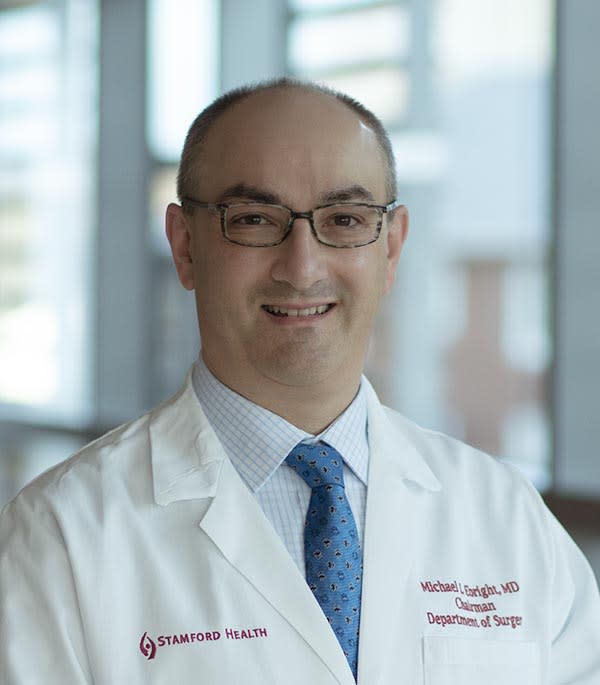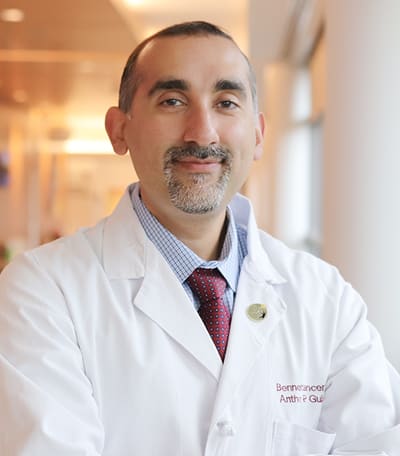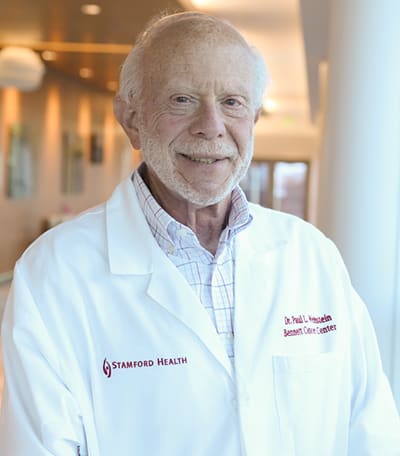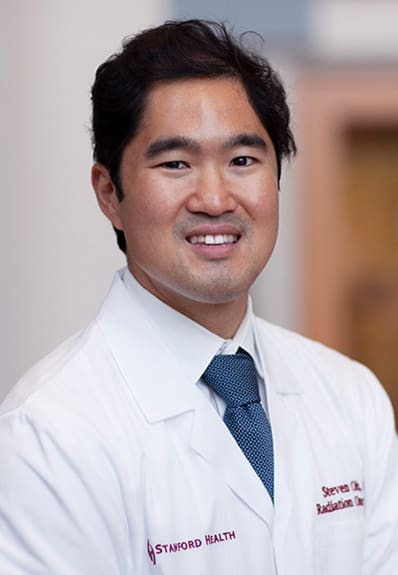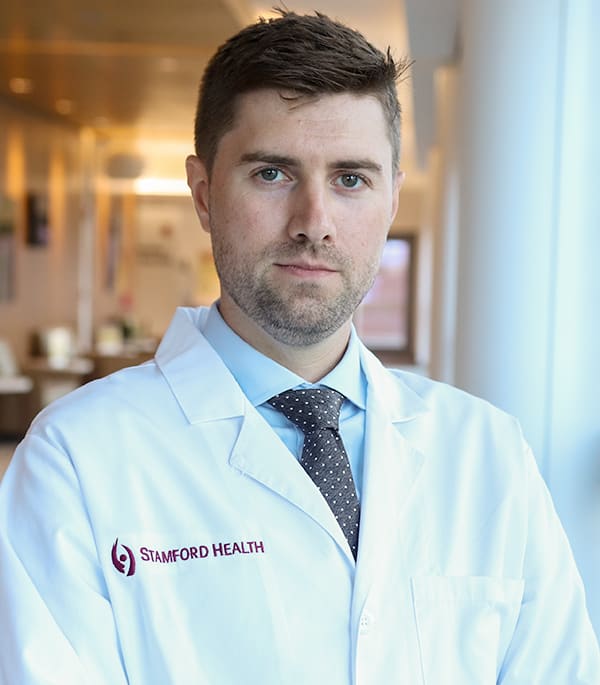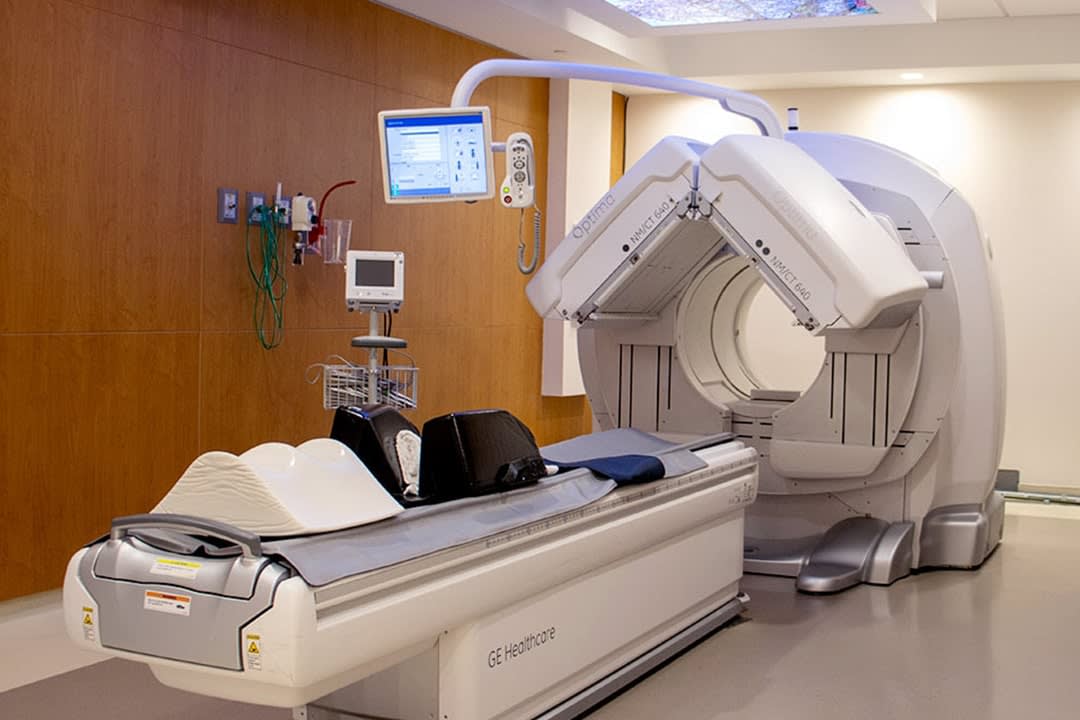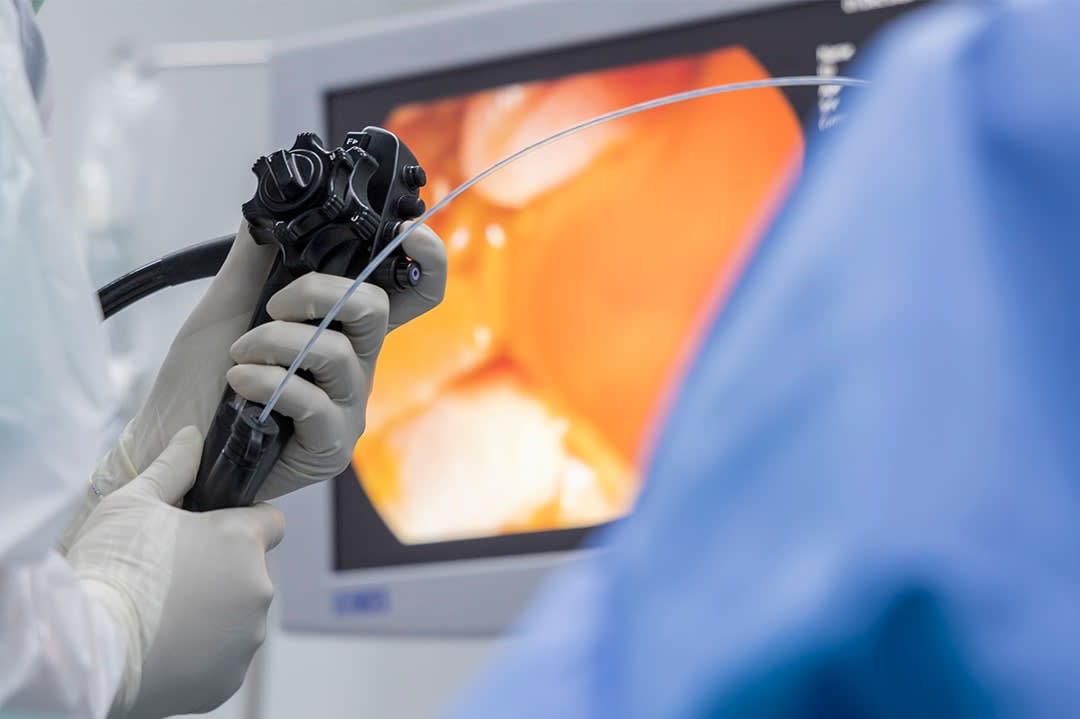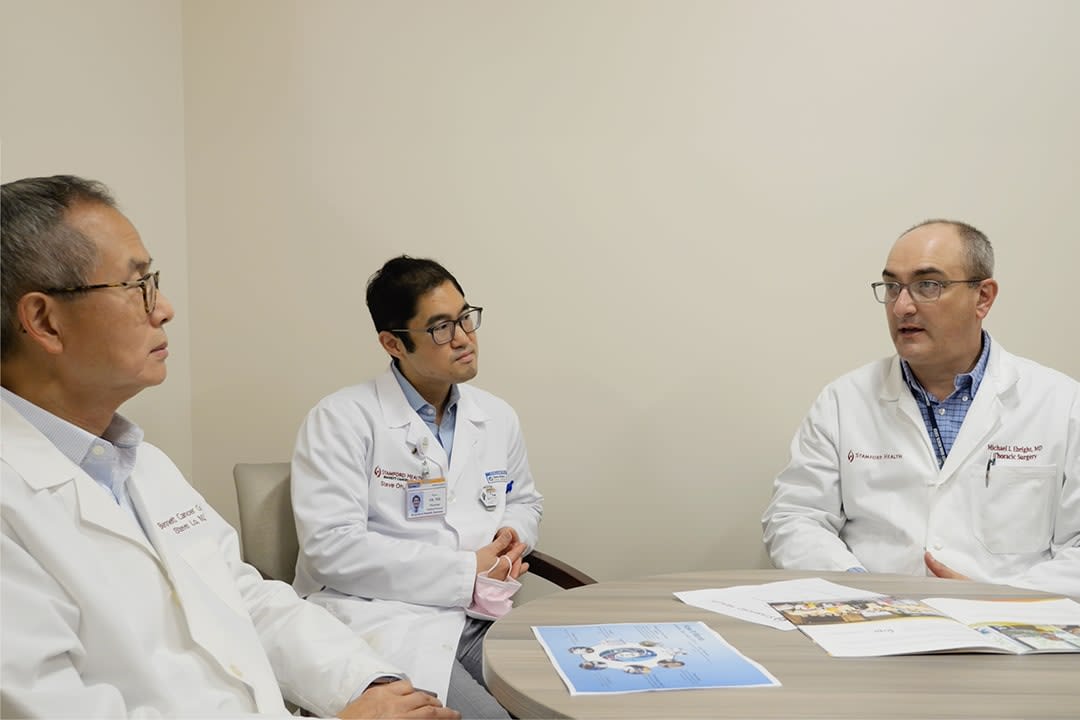Our Compassionate, Comprehensive Approach
At Stamford Health, we are committed to providing emotional support along with the latest medical and integrative medicine treatments and diagnostic services.
Meet Our Physicians
-
Surgery
-
Medical Oncology
-
Radiation Oncology
-
Pathology
A Closer Look At Our Cancer Care
Stomach & Esophageal Cancers Treatment Options
Once a diagnosis is made, treatment depends on the type and stage of the gastric or esophageal cancer. Your oncologist will work with you to personalize a plan that’s best for you.
Symptoms Of Gastric Or Esophageal Cancer
Though relatively rare in the United States, symptoms of gastric and esophageal cancers may include:
- Weight loss
- Swallowing difficulties
- Acid reflux
- Upper abdominal and back pain
- Feeling full after meals
- Nausea and vomiting
- Decreased energy
- Occasional blood in stool
Stomach & Esophageal Cancer FAQs
-
How do you know if you should undergo screening for stomach or esophageal cancer?If you experience symptoms like persistent indigestion, difficulty swallowing, or unintended weight loss, or if you have risk factors such as a family history of stomach or esophageal cancer, consult with your health care provider. They can assess your individual risk and recommend appropriate screening.
-
What screening options are available for stomach & esophageal cancer at Stamford Health, and how do you decide which one is suitable?Stamford Health uses advanced imaging technology and endoscopic procedures for accurate screenings and diagnoses. Your health care provider will consider your medical history, risk factors, and preferences to help you make an informed decision about the most suitable screening option for you.
-
How can you schedule a stomach or esophageal cancer screening appointment at Stamford Health?Scheduling a screening is easy. You can contact us directly at 203.276.2273 (press 2) or follow the referral pathway outlined by your health care provider. Early detection is crucial, so don’t hesitate to reach out.
-
Can you seek a second opinion for a cancer diagnosis and treatment plan at Stamford Health?Absolutely. Stamford Health encourages individuals to seek second opinions. The process is collaborative and patient-centered, ensuring you have a comprehensive understanding of your diagnosis and treatment options.
-
How can you reduce the risk of developing stomach or esophageal cancer, especially if you have a family history or other risk factors?Minimizing the risk of stomach and esophageal cancer involves adopting a holistic approach to health. Maintain a balanced and nutritious diet, avoid tobacco and excessive alcohol, and consider addressing specific risk factors, such as infection. If you have a family history or other concerns, consult with your health care provider for personalized guidance on lifestyle modifications that can significantly contribute to lowering your overall cancer risk.
-
What role does family history play in the risk of stomach & esophageal cancer, and should individuals with a family history be screened more frequently?Family history can contribute to the risk of stomach cancer. Individuals with a family history may benefit from more frequent screenings and preventive measures. Consult with your health care provider to determine the most appropriate screening schedule based on your risk factors.






